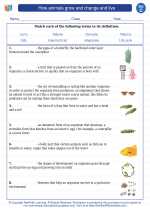Mosses: An Overview
Mosses are small, non-vascular plants that belong to the phylum Bryophyta. They are found in moist environments such as forests, swamps, and shaded areas. Mosses lack true roots, stems, and leaves, and reproduce via spores.
Physical Characteristics of Mosses
- Size: Mosses are typically small, ranging in height from a few millimeters to a few centimeters.
- Color: They come in various shades of green, yellow, or brown, depending on species and environmental conditions.
- Structure: Mosses have a simple structure with leaf-like structures called phyllids and a stem-like structure called a rhizoid, which aids in anchoring the plant to the substrate.
Life Cycle of Mosses
Mosses have a unique life cycle that involves alternation of generations. The dominant phase in the life cycle is the gametophyte, which produces male and female gametes. When the sperm from the male gametophyte fertilizes the egg in the female gametophyte, a sporophyte is formed, which eventually releases spores for reproduction.
Ecological Importance
Mosses play a crucial role in the ecosystem. They help in retaining moisture, preventing soil erosion, and providing habitat and food for various organisms.
Study Guide for Mosses
- What are the main characteristics of mosses?
- Describe the life cycle of mosses, including the alternation of generations.
- Explain the ecological importance of mosses in their respective habitats.
- Identify and describe at least three different species of mosses and their unique features.
- Discuss the adaptations of mosses that allow them to thrive in moist environments.
Exploring the world of mosses can be fascinating as these small plants have important ecological roles and unique life cycles. Take your time to understand the concepts and don't forget to observe the mosses in your own surroundings!
.◂Science Worksheets and Study Guides Third Grade. How animals grow and change and live
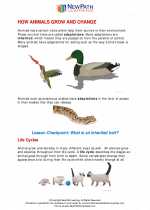
 Worksheet/Answer key
Worksheet/Answer key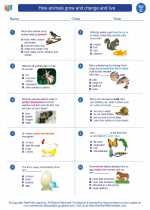
 Worksheet/Answer key
Worksheet/Answer key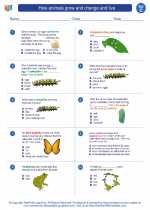
 Worksheet/Answer key
Worksheet/Answer key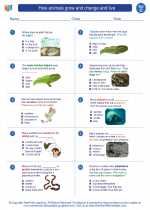
 Worksheet/Answer key
Worksheet/Answer key
 Vocabulary/Answer key
Vocabulary/Answer key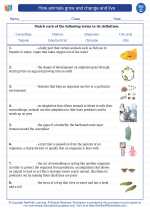
 Vocabulary/Answer key
Vocabulary/Answer key